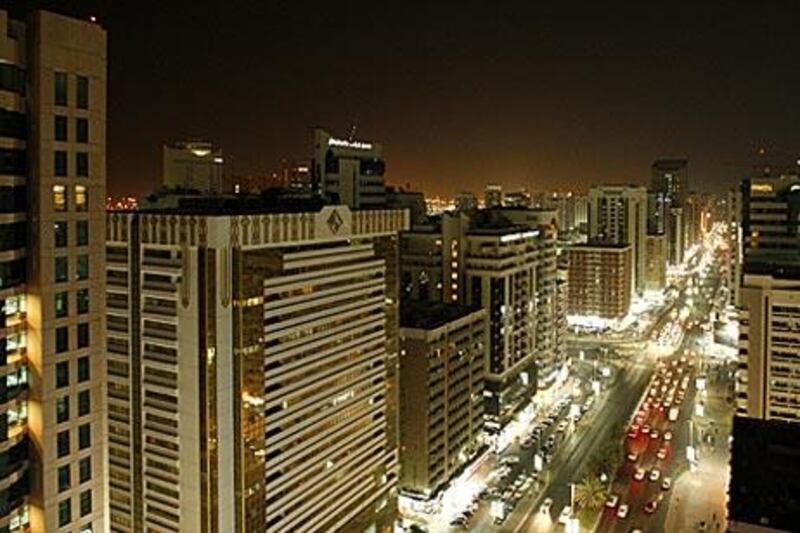ABU DHABI // Save money by giving your appliances the afternoon off. In simplest terms, that is the voluntary scheme being proposed in the capital to reduce peak electricity demands. By installing "smart" meters, power consumed during off-peak hours would cost volunteer consumers less. Conversely, power used during peak-demand hours, generally from noon until 6pm, would cost extra.
The pilot project is one of several measures to save electricity and water announced yesterday by the Regulation and Supervision Bureau (RSB), which regulates the two sectors throughout Abu Dhabi. Traditionally, the Government has reacted to increasing demand for power and water by boosting capacity. The announcement yesterday represents one of the first steps towards a different approach ensuring that the existing infrastructure runs as efficiently as possible.
At the heart of the problem is peak demand the time when electricity use is highest. In the UAE, mostly because of the large amounts of air-conditioning used, the peak in summer is significantly higher than minimums observed in winter. Electricity infrastructure needs to have the capacity to cater to demand in peak times, meaning its operations may be less efficient during slack periods. That gap, said Nick Carter, the RSB's director general, can be reduced if consumers defer non-essential activities to times of low demand. They could wash clothes in the morning or run a dishwasher late at night.
"The aim of this study is to look at the behaviour of people and see how they respond to price signals," Mr Carter said The varying tariffs for electricity use have not been fixed yet, Mr Carter said. It remains to be seen how Emirati households will react to the scheme. While the Government subsidises electricity and water prices for all users, Emiratis benefit the most with prices of five fils per kilowatt hour (kWh). Expatriates pay three times as much and the full cost, said Mr Carter, is around 25 fils. There are currently no plans to review these tariffs.
"To some extend this [trial] could inform us in the Government how people will behave, but there is right now no plan to change the tariffs," he said. The trial might take up to two years to complete. Mr Carter said that if it is successful in bringing down consumption, it could be extended to more participants. Over the course of the summer, air-conditioning contributes to some 3,000 megawatts of electricity demand nationwide around two and a half times the expected annual output of each of the country's new generation of nuclear reactors. Overall, the peak use is 7,000mw.
Abdulla Saleh, 24, lives in a 12-person villa in Khalifa City. "We are paying up to Dh3,000 per month because our villa is large," he said. "We would like to help but I do not think this can work in the UAE. Here the weather is not like in Europe and we need the air conditioning 24/7." The RSB is also hoping to run another trial aiming to reduce energy use in large buildings by focusing on air-conditioning equipment, Mr Carter said.
Ali al Mashjari, production manager at the RSB, said that the aim of the trial which will focus on centrally controlled air-conditioning is to shave 250wm from the system peak by the end of 2012. This equals to a reduction of four per cent of the peak. Initiatives targeting the water sector were also announced. One of them, said Khadija bin Braik, a wastewater engineer, is a study that will compare the amount of desalinated water produced versus the amount collected by the emirate's sewer network.
Abu Dhabi produces 600 million gallons of desalinated water per day. Previous studies show that of the total only 20 to 30 per cent is captured at treatment plants, indicating that large amounts of potable water are most likely used for purposes such as irrigation or car washing. The goal, she said, is to encourage water reuse. In May, the RSB will release two new regulations pertaining to wastewater, ultimately aiming to control the quality of the water that enters the sewage network and the quality of the treated water.
The regulations will affect businesses, which are currently allowed to discharge effluent into the system. vtodorova@thenational.ae






